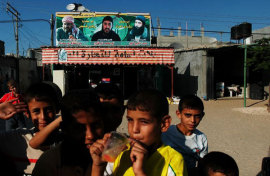
Melani McAlister: Evangelicals, Compassion, Islam
Attached are some photos that together offer something of a montage of evangelical (self/global) images. I posit them as an illustration or an accompaniment to my earlier post, but also, in some way, I hope they begin to respond to the conversation about what constitutes, or whether one can clearly constitute, a religious/secular divide.
Mary Keller previously cited Talal Asad's crucial argument about the quandry of asking religious discourse to disavow its own claims to ultimate truth. I'm paraphrasing, but Asad essentially says that, in invoking a public sphere, we ask that everyone bring to the table issues to be negotiated in "rational discourse" (as Habermas says). But what happens when there are items that are not up for negotiation? Secularists, in his view, tend to want everybody to put pretty much everything up for debate and negotiation in the public sphere. But religious beliefs are often precisely about establishing the terms of what is non-negotiable, what is True.
So I'm less certain about Mary's statement that, while she believes it is important to value religious practice and experience:
"It is the repressive quality of religious discourse that I think is the
greatest threat posed by religious traditions. When a discourse posits
purity, originary states, good/evil dichotomies and builds up the forces of
repression, that is when I am concerned. "
For Asad, and for many evangelical Christians, religious faith is -about- positing purity, originary states, and good/evil dichotomies. For evangelical, and many other, Christians, the belief in a pure, originary space of goodness, from which creation emerged and then fell, is central to the faith. You can't just parse it out.
This is what I am hoping to get at with the mosaic attached here:
The first is an image of "The Jesus Film" being shown somewhere in Asia. It is from the site, "JesusFilm.org," the distributor of the film, which is perhaps the most widely used evangelistic tool in the world.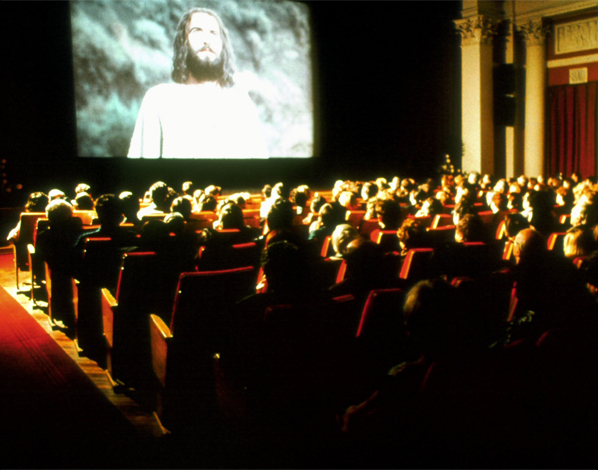
Second is a map of the 10/40 Window, that area of the world targeted by the late 1990s global missionary revival; it marks those areas, "enslaved by Hinduism and Islam" that are sources of particular missions activity by evangelicals from around the world, not just the United States.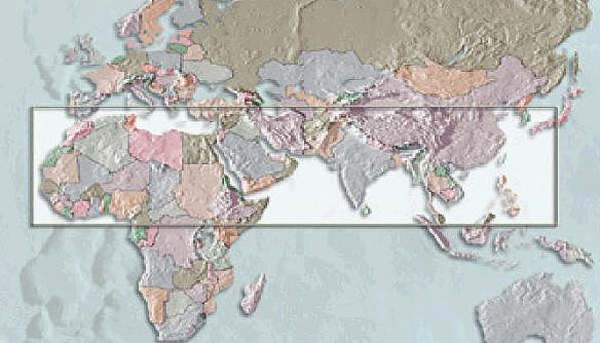
Next is an image from Baptist Missions International about "reaching" Africa.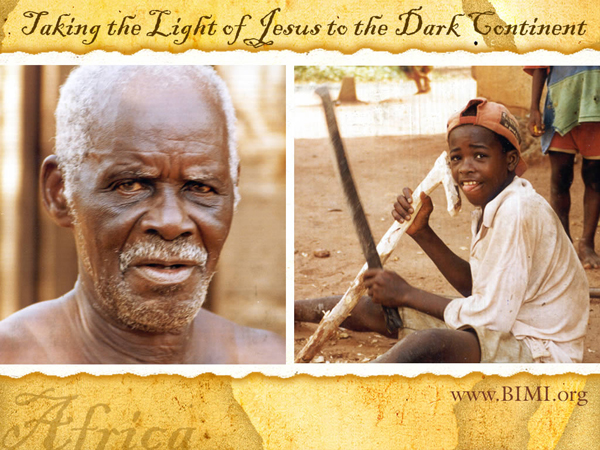
Then a photo from one of the scores of organizations that are opposed to "Christian persecution." This is a typical image of the safer type; often they are far more graphic. This is of a man in Nigeria who is said to have been injured when a Muslim group attacked a church. These are basically "human rights" photos, not so different from those used in other kinds of activism, but now enfolded into this work specifically on the situation of Christians and especially in Muslim countries.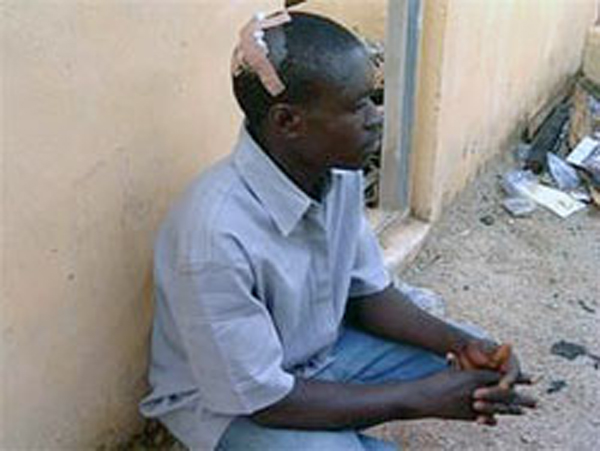
Two final images: one is from "Blood:Water Mission," the charity run by Christian rockers Jars of Clay, which they use to raise money for HIV/AIDS work and well-building projects in Africa. The last is a photo from Micah Challenge, which is an international evangelical activism organization, supported by evangelicals -across- the political spectrum. (I first learned about it at a conference that was otherwise very right wing. The major sponsoring organization is the World Evangelical Alliance.) The relevant verse in Micah 6:8: "What does the Lord require of you but to do justice, to love kindness, and to walk humbly with your God." The "challenge" is to support the UN's goal (yes, the UN) to halve world poverty by the year 2015. The photo is from the "launch" of the Micah Challenge. The full caption is just below.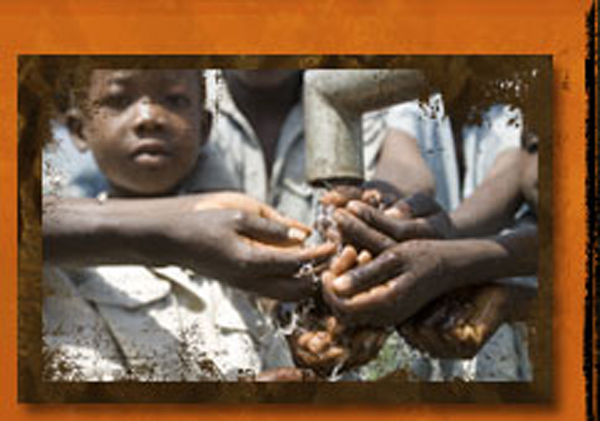
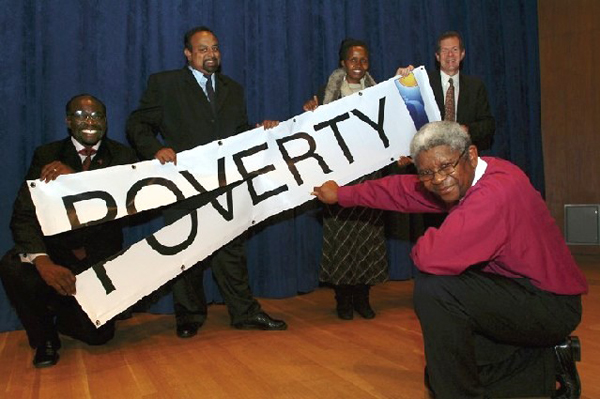 Micah challenge: Archbishop of Cape Town, The Most Reverend Njongonkulu demonstrates Micah Challenge’s commitment to cutting poverty by half, with (from left) Bishop Paul Mususu, (Executive Director of the Evangelical Fellowship of Zambia); Godfrey Yogarajah, (General Secretary of the Evangelical Fellowship of Asia); Fidelis Wainaina, (Director of Maseno InterChristian Child Self Help Group Kenya); Doug Balfour (General Director of Tearfund, UK).
Micah challenge: Archbishop of Cape Town, The Most Reverend Njongonkulu demonstrates Micah Challenge’s commitment to cutting poverty by half, with (from left) Bishop Paul Mususu, (Executive Director of the Evangelical Fellowship of Zambia); Godfrey Yogarajah, (General Secretary of the Evangelical Fellowship of Asia); Fidelis Wainaina, (Director of Maseno InterChristian Child Self Help Group Kenya); Doug Balfour (General Director of Tearfund, UK).
I hope these images give some sense of the complexity of evangelical internationalism today: its global reach, fears of Islam, and focus on Ch persecution, as well as its commitment to working on issues of global social justice.
> Melani McAlister

